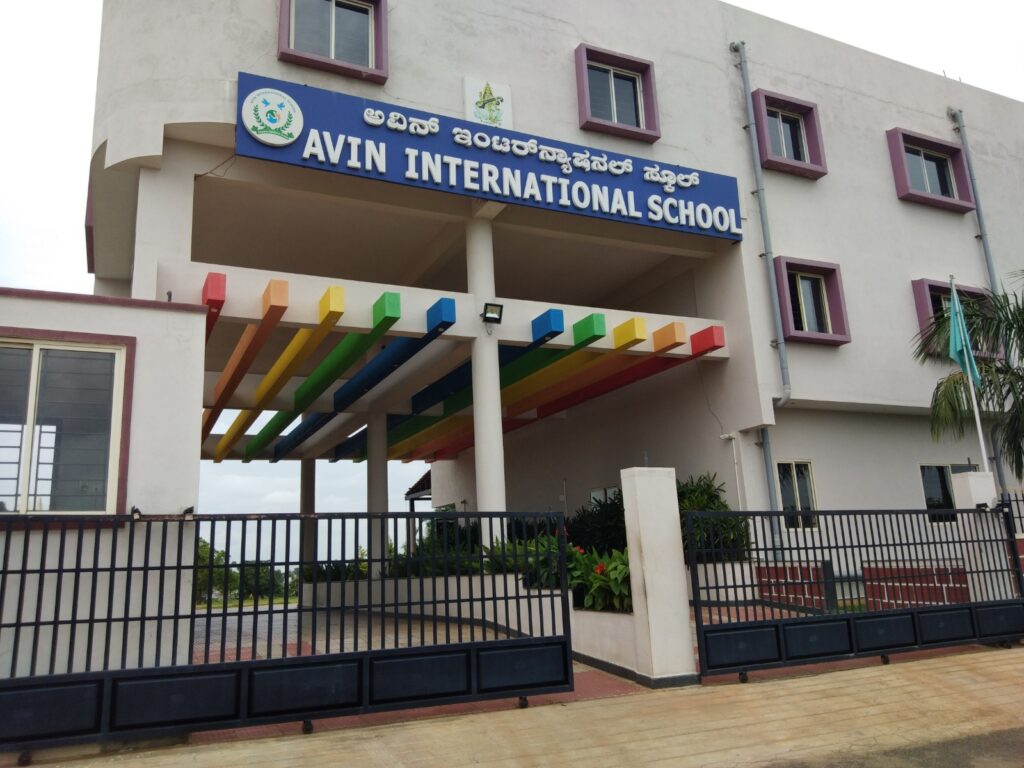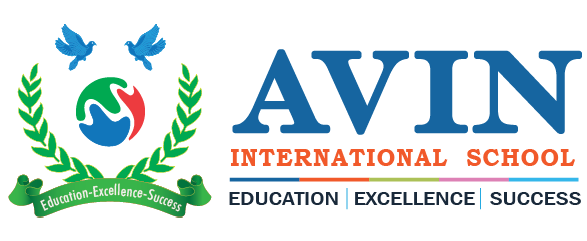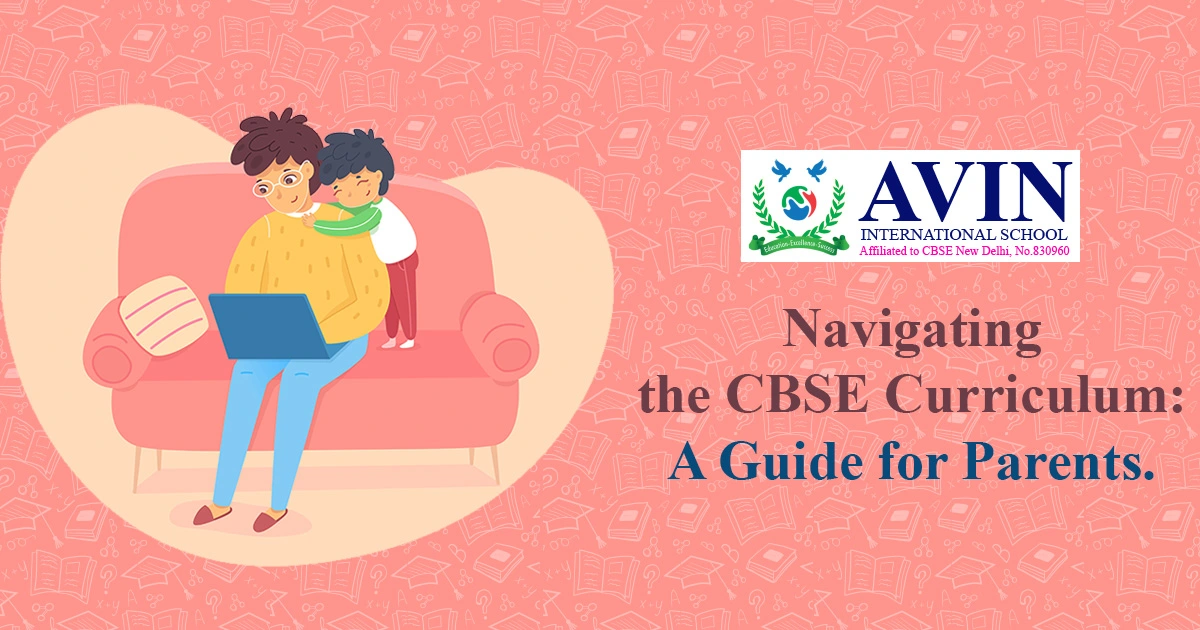Understanding the Journey Your Child Is About to Begin
As parents, one of the most important decisions we make is choosing the right school and academic framework for our children. In India, the CBSE (Central Board of Secondary Education) curriculum is one of the most widely adopted educational systems—structured, balanced, and focused on both knowledge and life skills.
At AVIN International School, we believe that understanding the CBSE framework helps parents actively support their child’s academic journey. This guide breaks down the CBSE curriculum in simple terms, explaining how we at AVIN International School implement it across different grades—from foundational learning in primary school to holistic development in higher grades.
Whether you’re a first-time parent or new to the CBSE system, this guide will help you navigate the structure, methodology, and philosophy behind one of India’s most respected education boards.
What Is the CBSE Curriculum?
The CBSE (Central Board of Secondary Education) is a national-level education board in India that’s known for its comprehensive, standardized, and student-centric approach. Unlike some regional boards that emphasize rote learning, the CBSE framework focuses on conceptual understanding, analytical thinking, and practical application of knowledge.
At its core, the CBSE curriculum is designed to:
- Promote uniform learning standards across the country.
- Encourage critical thinking and inquiry-based learning.
- Prepare students for competitive exams like JEE, NEET, and UPSC.
- Integrate life skills and values with academics.
At AVIN International School, we tailor this curriculum to ensure that learning is not just exam-oriented but also curiosity-driven. Our teachers adapt lesson plans to suit diverse learning styles, ensuring that every child feels confident and engaged.
Structure of the CBSE Curriculum
The CBSE framework is divided into different learning stages to align with a child’s cognitive and emotional development. Here’s how it unfolds across grades:
a) Foundational Stage (Pre-Primary to Grade 2)
- Focus: Play-based, activity-driven learning.
- Subjects: Literacy, numeracy, environmental awareness, art, and physical activity.
- Approach at AVIN:
- Hands-on learning through storytelling, rhymes, and creative play.
- Use of phonics and visual aids for language development.
- Foundational numeracy through patterns, counting, and basic logic.
- Integration of values and habits that build emotional intelligence.
- Hands-on learning through storytelling, rhymes, and creative play.
b) Preparatory Stage (Grades 3–5)
- Focus: Building conceptual understanding.
- Subjects: English, Mathematics, EVS, Computer Science, and Art.
- Approach at AVIN:
- Interactive projects, group discussions, and experiments.
- Regular assessments to identify learning gaps early.
- Exposure to technology and digital tools.
- Introduction to environmental and social awareness.
- Interactive projects, group discussions, and experiments.
c) Middle Stage (Grades 6–8)
- Focus: Abstract thinking and deeper subject knowledge.
- Subjects: Languages, Science, Social Science, Mathematics, Computer Applications, and Physical Education.
- Approach at AVIN:
- Hands-on lab sessions and research-based projects.
- Focus on skill-based education—communication, leadership, problem-solving.
- Introduction to coding, robotics, and real-world applications.
- Guidance for developing self-discipline and academic independence.
- Hands-on lab sessions and research-based projects.
d) Secondary Stage (Grades 9–10)
- Focus: Career awareness and analytical learning.
- Subjects: Core CBSE subjects—Maths, Science, Social Science, English, and Second Language.
- Approach at AVIN:
- In-depth subject preparation aligned with CBSE Board standards.
- Use of modern teaching aids—smart classrooms, interactive quizzes, and e-learning modules.
- Career guidance sessions to help students explore future paths.
- Balanced emphasis on academics and co-curricular excellence.
- In-depth subject preparation aligned with CBSE Board standards.
How AVIN International School Implements the CBSE Curriculum?
At AVIN International School, Kengeri, we bring the CBSE framework to life with a focus on innovation, inclusivity, and experiential learning.
a) Concept-Based Teaching
Rather than memorizing, our students learn through understanding and application. Science lessons include real-life experiments, while language classes focus on storytelling and communication rather than rote grammar.
b) Continuous Assessment
We follow the CBSE-recommended Continuous and Comprehensive Evaluation (CCE) model. This involves regular class participation, projects, and activities that ensure every child’s progress is consistently tracked.
c) Integration of Technology
Smart classrooms, digital boards, and learning apps are part of our everyday teaching. We believe that introducing students to digital literacy early helps them stay ahead in a tech-driven world.
d) Focus on Values and Life Skills
Aligned with the CBSE framework, AVIN emphasizes values such as empathy, teamwork, and respect. Through activities like student clubs and social responsibility programs, we ensure holistic character development.
e) Global Perspective
While rooted in the CBSE curriculum, our teaching methodology incorporates global best practices. We expose students to STEAM (Science, Technology, Engineering, Arts, and Mathematics) learning and international competitions to broaden their horizons.
How Parents Can Support the CBSE Learning Journey?
At AVIN International School, we believe education is a partnership between school and home. Here’s how parents can help their children thrive in the CBSE framework:
a) Encourage Independent Learning
CBSE promotes critical thinking. Let children explore answers, question ideas, and attempt problem-solving on their own before stepping in with help.
b) Create a Routine
Consistent study hours, reading time, and breaks foster discipline—key to managing CBSE’s structured curriculum.
c) Stay Involved
Attend parent-teacher meetings, check student progress reports, and be aware of upcoming assessments. Engagement boosts motivation and accountability.
d) Focus on Concept Clarity
Encourage understanding over memorization. Use real-world examples to explain concepts (e.g., using grocery shopping to teach math!).
e) Balance Academics and Activities
Extracurriculars are a crucial part of CBSE education. At AVIN, sports, art, music, and robotics help students discover passions beyond textbooks.
CBSE Assessment & Grading System Simplified
The CBSE grading system aims to reduce stress and reward effort over competition. Here’s a quick look:
| Grade | Marks Range | Performance Descriptor |
| A1 | 91–100 | Outstanding |
| A2 | 81–90 | Excellent |
| B1 | 71–80 | Very Good |
| B2 | 61–70 | Good |
| C1 | 51–60 | Satisfactory |
| C2 | 41–50 | Average |
| D | 33–40 | Pass |
| E | Below 33 | Needs Improvement |
Bridging Classroom Learning with Real-World Skills
One of the standout features of the CBSE curriculum is its real-world relevance. AVIN International School reinforces this by connecting theory with practice:
- Science: Real experiments and innovation labs.
- Mathematics: Practical applications in budgeting, design, and architecture.
- Languages: Debates, storytelling, and creative writing competitions.
- Social Science: Field trips, community interaction, and environmental awareness drives.
These initiatives ensure students don’t just learn subjects—they experience them.
Why Parents in Kengeri Prefer AVIN International School?

a) Strong Academic Foundation
CBSE’s conceptual clarity meets AVIN’s personalized teaching. Students not only score well but also develop a genuine love for learning.
b) Safe, Nurturing Environment
With an emphasis on emotional well-being and inclusivity, every child is valued, supported, and encouraged to express themselves freely.
c) Holistic Growth
From sports and robotics to arts and leadership clubs, AVIN ensures that every learner’s potential is recognized.
d) Parental Involvement
We maintain transparent communication channels—parents are always informed, involved, and empowered to support their child’s learning.
Preparing for the Future: Beyond CBSE Classrooms
The CBSE curriculum at AVIN International School lays the foundation for higher education and life skills. Our senior students graduate not just with strong academic credentials, but with the confidence to adapt, communicate, and lead in the real world.
Through exposure to inter-school competitions, Olympiads, and community service, our students become well-rounded global citizens ready for any path they choose.
Conclusion: A Curriculum That Nurtures Mind, Body, and Heart
Navigating the CBSE curriculum becomes easy when you have the right school guiding your child every step of the way.
At AVIN International School, Kengeri, Bangalore, we bring together structured academics, experiential learning, and emotional intelligence to ensure every child thrives.
The CBSE framework gives direction—we give it heart and meaning.
Frequently Asked Questions (FAQs)
1. What is the main advantage of the CBSE curriculum?
The CBSE curriculum provides a uniform learning experience across India, focusing on conceptual clarity and preparation for national-level exams.
2. How does AVIN International School adapt CBSE teaching for young learners?
We use experiential methods—games, projects, and stories—to make foundational learning engaging and age-appropriate.
3. Is CBSE better than ICSE or State Board?
Each has its strengths, but CBSE offers a more balanced and adaptable structure, making it ideal for families that may relocate or aim for national-level exams.
4. Does CBSE focus only on academics?
No, the CBSE framework encourages holistic development through sports, arts, and life skills.
5. How can parents help their child excel in the CBSE system?
Encourage conceptual understanding, consistent study habits, and a healthy balance between academics and extracurriculars.

